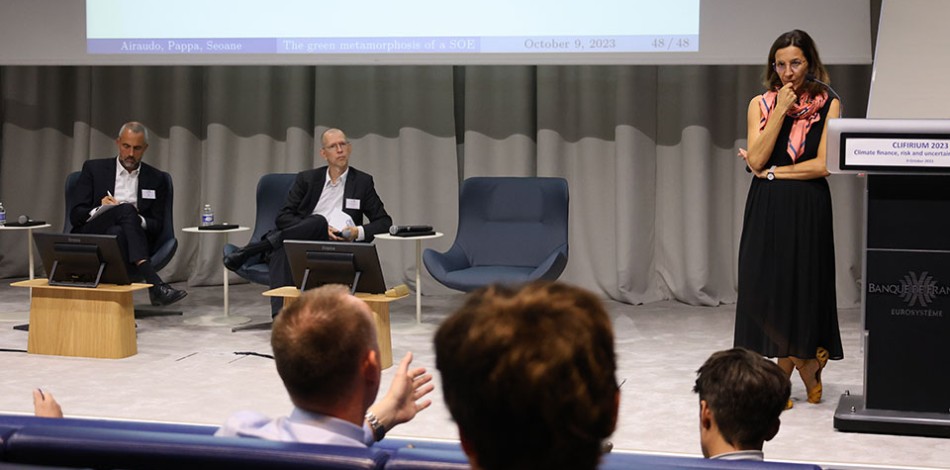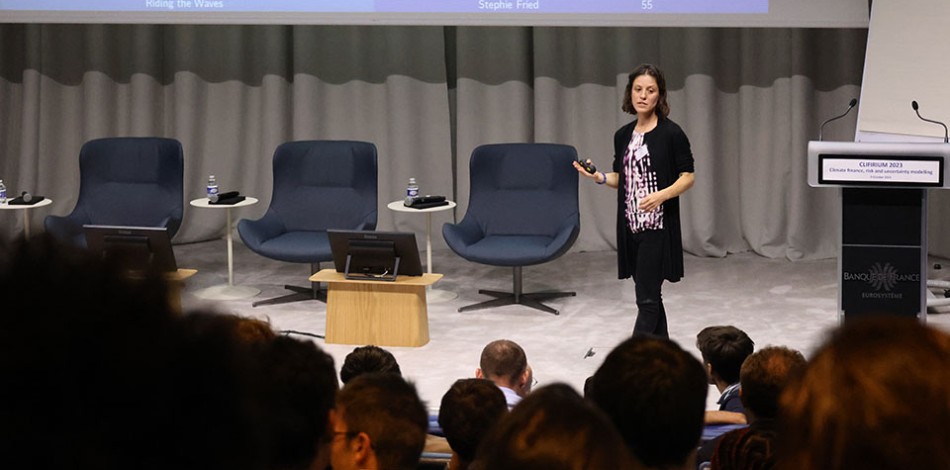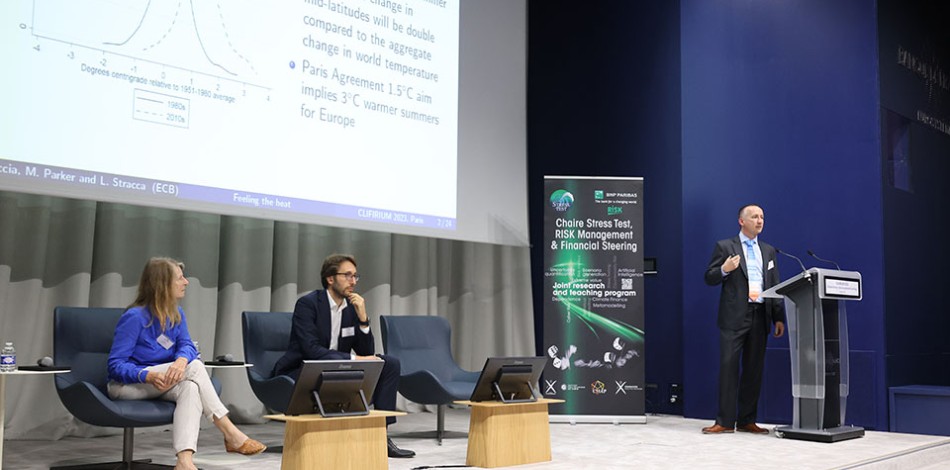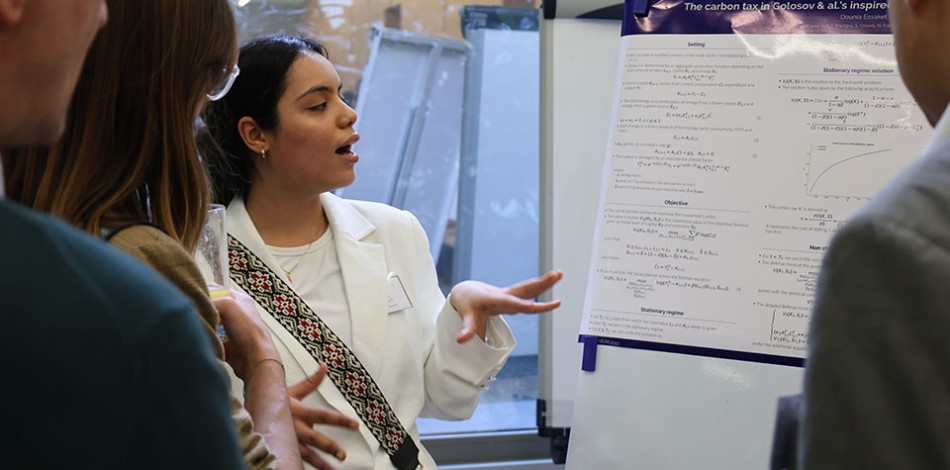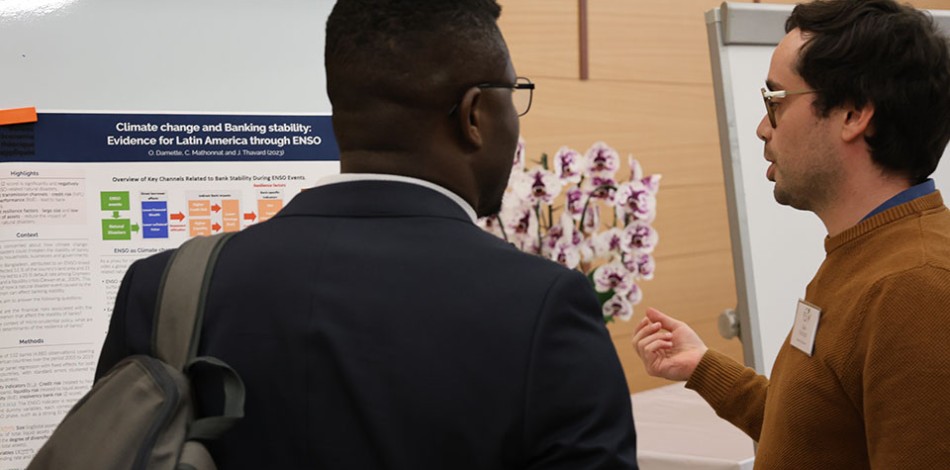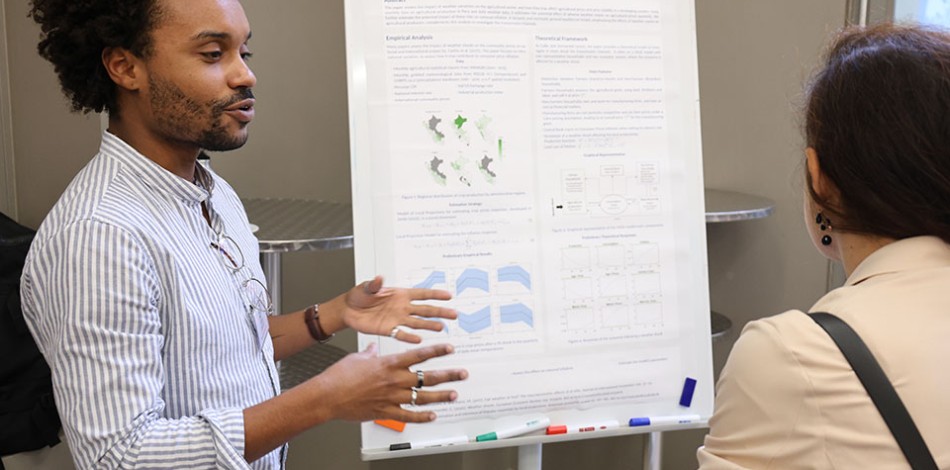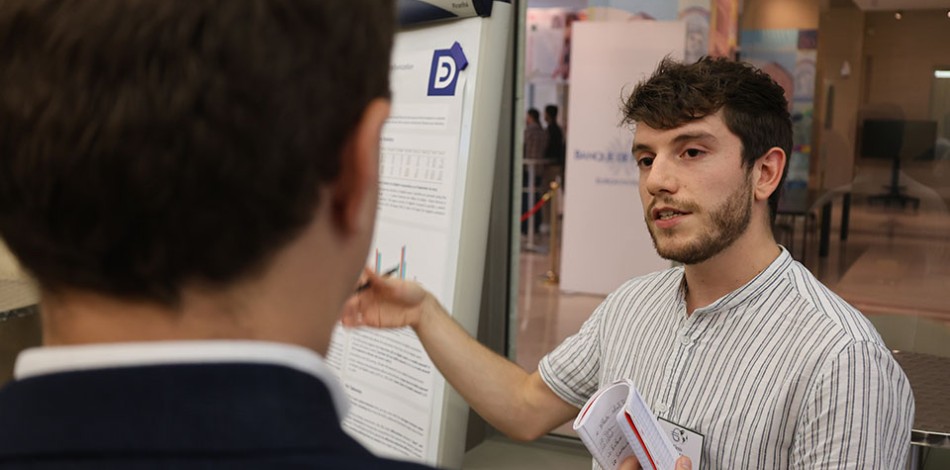CLIFIRIUM: a multidisciplinary conference on climate economics
 The CLIFIRIUM conference took place at the Banque de France and the French Banking Federation.
The CLIFIRIUM conference took place at the Banque de France and the French Banking Federation.
From 09 to 11 October 2023, the “Stress-Test: Risk Management and Financial Steering” Chair organised its annual Climate Finance, Risk and Uncertainty Modelling (CLIFIRIUM) conference, a three-day event hosted by the Banque de France and the French Banking Federation.
The programme included lectures, master classes, plenary sessions, poster sessions and fifteen-minute flash talks. Covered topics included the theoretical perspective of green inflation, empirical methods applied to physical risks, the use of integrated assessment models in economics, credit and climate risks, and green finance. The presentations rose many questions from the audience and led to valuable discussions.
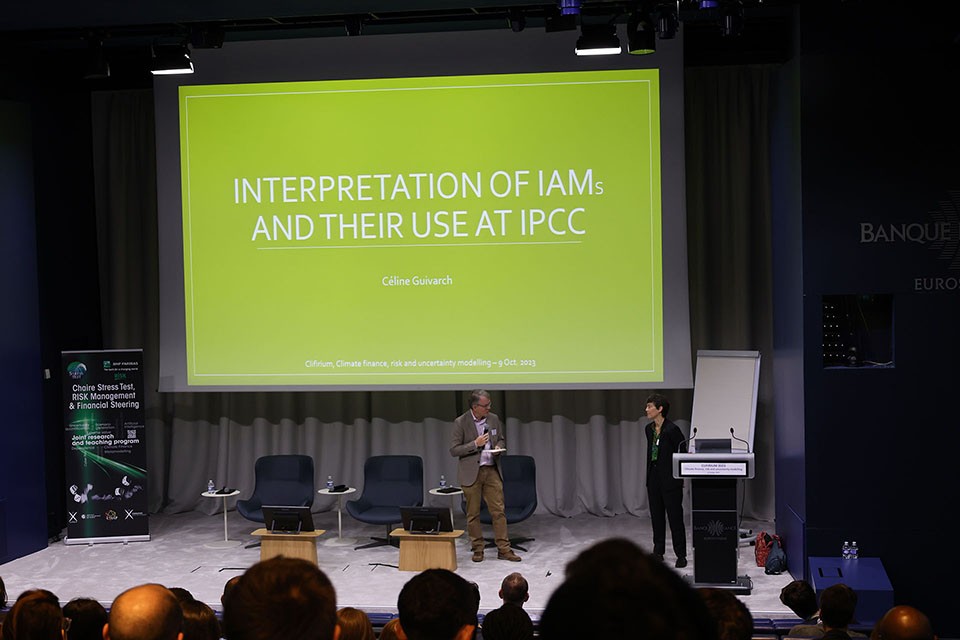
The mornings were devoted to an autumn school, aimed in particular at doctoral students, but which attracted a much wider audience. At the opening, economist Céline Guivarch presented the integrated assessment models and their use in the IPCC's Sixth Assessment Report, with examples of how these scenarios can be used. She then guided the audience through a practical demonstration of how to exploit this open data. Céline Guivarch is Director of Research at the Centre International de Recherche sur l'Environnement et le Développement (CIRED) at École des Ponts, and soon to be a professor at École Polytechnique. There, she is coordinating a course on sustainable development that will be taught from the start of the 2024 academic year to all students entering the 2nd year of the Polytechnique engineering cycle. Currently being prepared by lecturers and researchers from 7 different teaching departments, the programme promises to be broadly multidisciplinary.
Multidisciplinarity was also at the heart of the discussions during the CLIFIRIUM event, between the young researchers who took part in large numbers, economists, climate specialists and scientists from the academic world, banking supervision and banking teams. The interdisciplinarity between economics and climate is of interest to the new generation of researchers.
When asked about her choice of discipline, Dounia Essaket, a 2nd year PhD student at Université Paris Cité, who was presenting a poster on the carbon tax, explains:
"In my Masters, I took a course on green finance from Peter Tankov (editor's note: a professor at ENSAE and researcher at the Center for Research in Economics and Statistics (CREST**)), which convinced me to pursue a PhD on the subject. It is mathematics applied to the green economy. This application was important to me. Our generation is more concerned about climate change than our parents' generation, because we grew up with these issues.”
A view that is shared by Cédric Crofils, a 4th year PhD student at Paris Dauphine PSL and AMSE, who presented a poster on the link between climate shocks, agriculture, and inflation.
"I worked for a year in the institutional field, but on subjects that were not climate-related - a subject that interests me, but which didn't figure prominently enough in my studies. Therefore, I wanted to go further with a PhD. A PhD gives me the scientific expertise and legitimacy to work on public policy and thus have an impact on climate change.”
The "Stress-Test: Risk Management and Financial Steering" Chair, which is organising the conference, is headed by Emmanuel Gobet, professor at the École Polytechnique and researcher at CMAP. It is supported by BNP Paribas, whose Stress Testing & Financial Synthesis (STFS) teams, led by Marc Irubetagoyena (X94), are particularly active in taking climate factors into account in financial risk modelling.
CLIFIRIUM 2023 will have welcomed nearly 180 participants from 20 different countries, an international audience that shows that climate finance issues transcend borders. With the conference barely over, the Chair's teams were already preparing for the next event: the 3rd GenHack student challenge on generative models, held in January and February 2024. Meanwhile, the CLIFIRIUM conference will return in 2025.
*CMAP: a joint research unit CNRS, Inria, École Polytechnique, Institut Polytechnique de Paris, 91120 Palaiseau, France
** CREST: a joint research unit CNRS, École Polytechnique, GENES, ENSAE Paris, Institut Polytechnique de Paris, 91120 Palaiseau, France
About the Chair « Stress-test: Risk management and Financial Steering”
Founded in 2018 and headed by Emmanuel Gobet, the “Stress Test, Risk Management & Financial Steering” Chair studies the resilience of banking activities to shocks of various kinds (credit, market, operational, climate, cyber security, reputation, etc.). Supported by BNP Paribas, this research Chair benefits from the banking expertise and regulatory experience of its corporate sponsor to better understand the challenges and issues facing the banking system. Thus, the applied mathematics work coordinated by Emmanuel Gobet offers innovative approaches to risk modelling, simulation, statistical inference, machine learning and artificial intelligence.
 Support l'X
Support l'X 